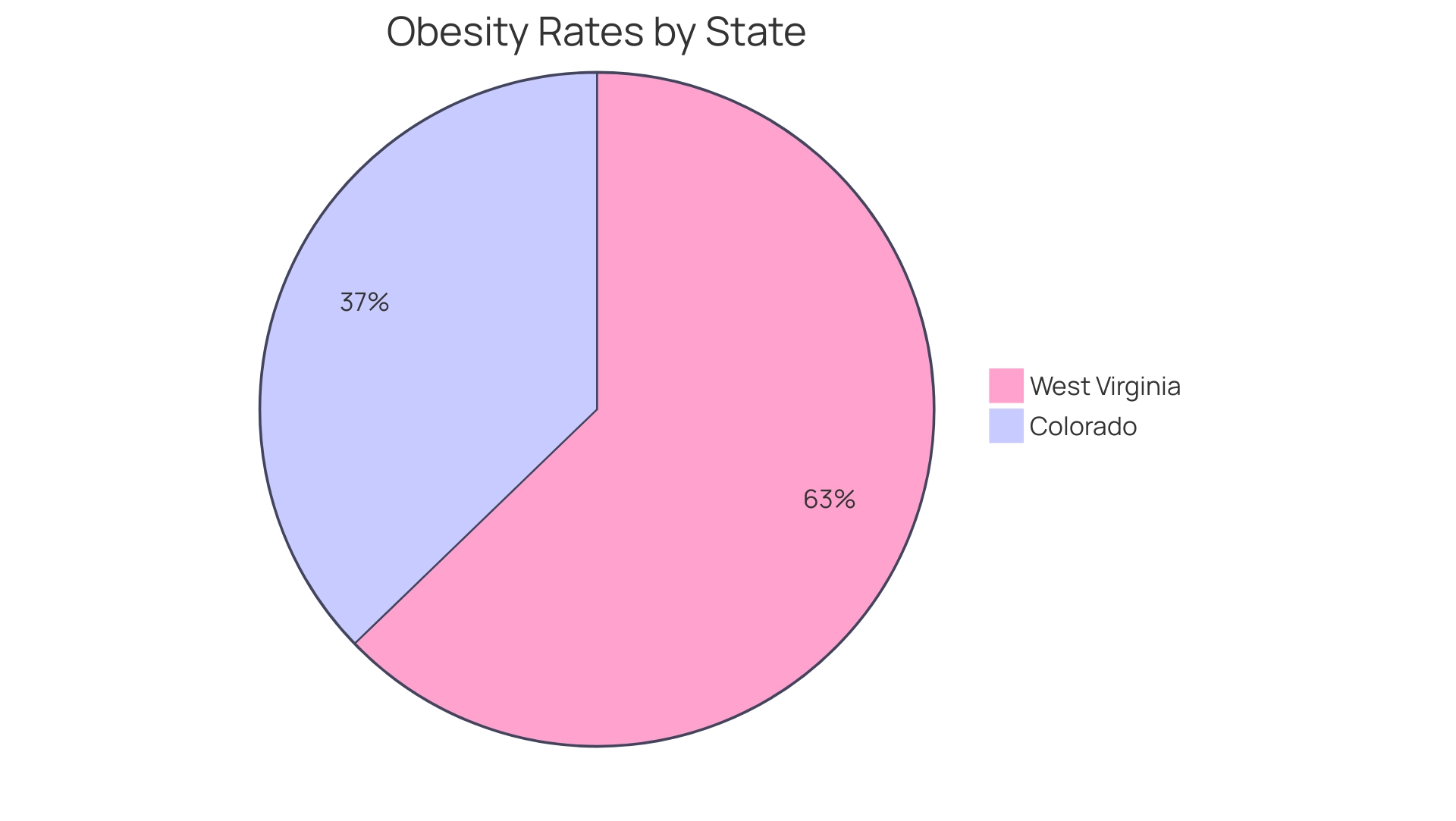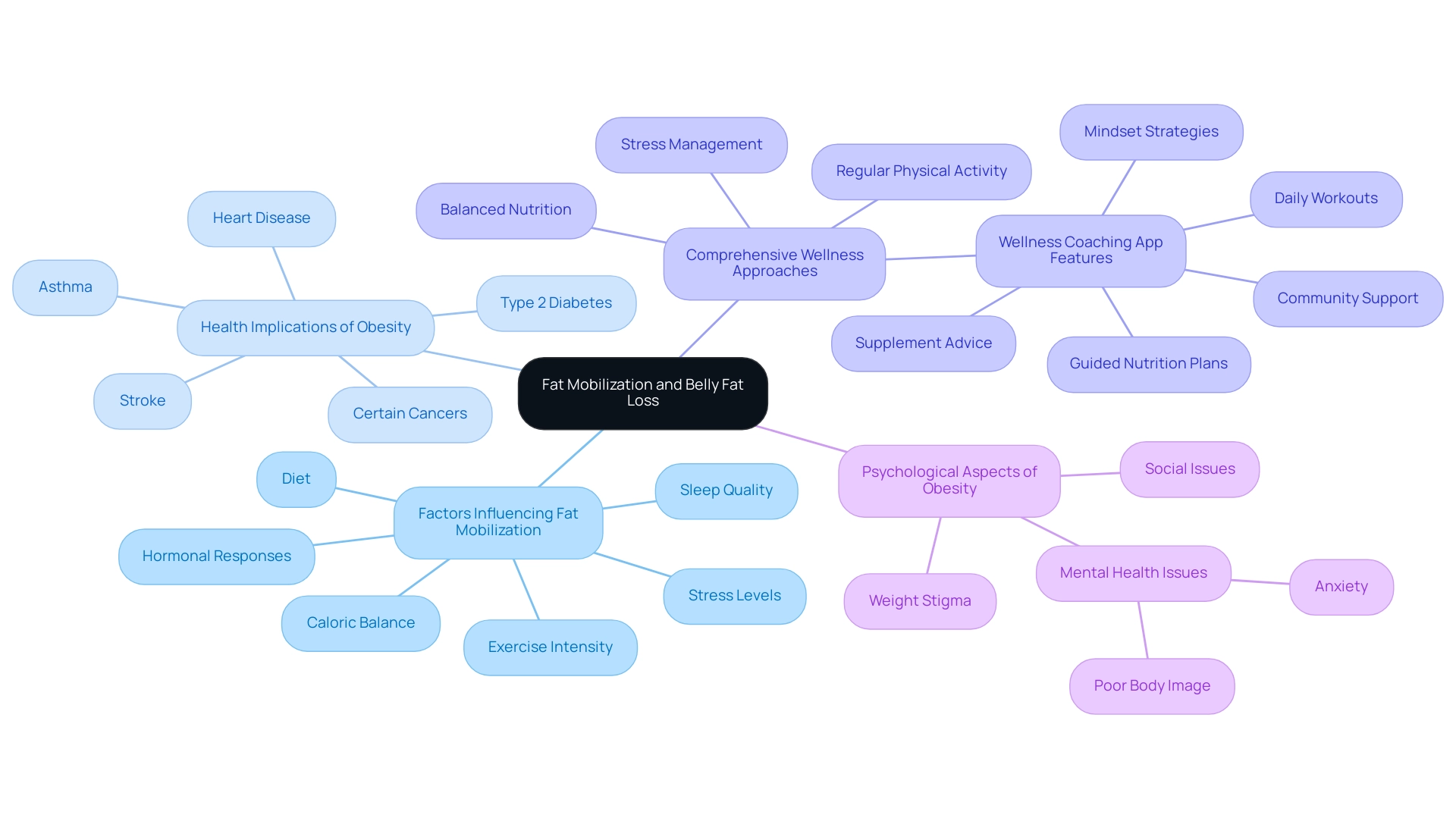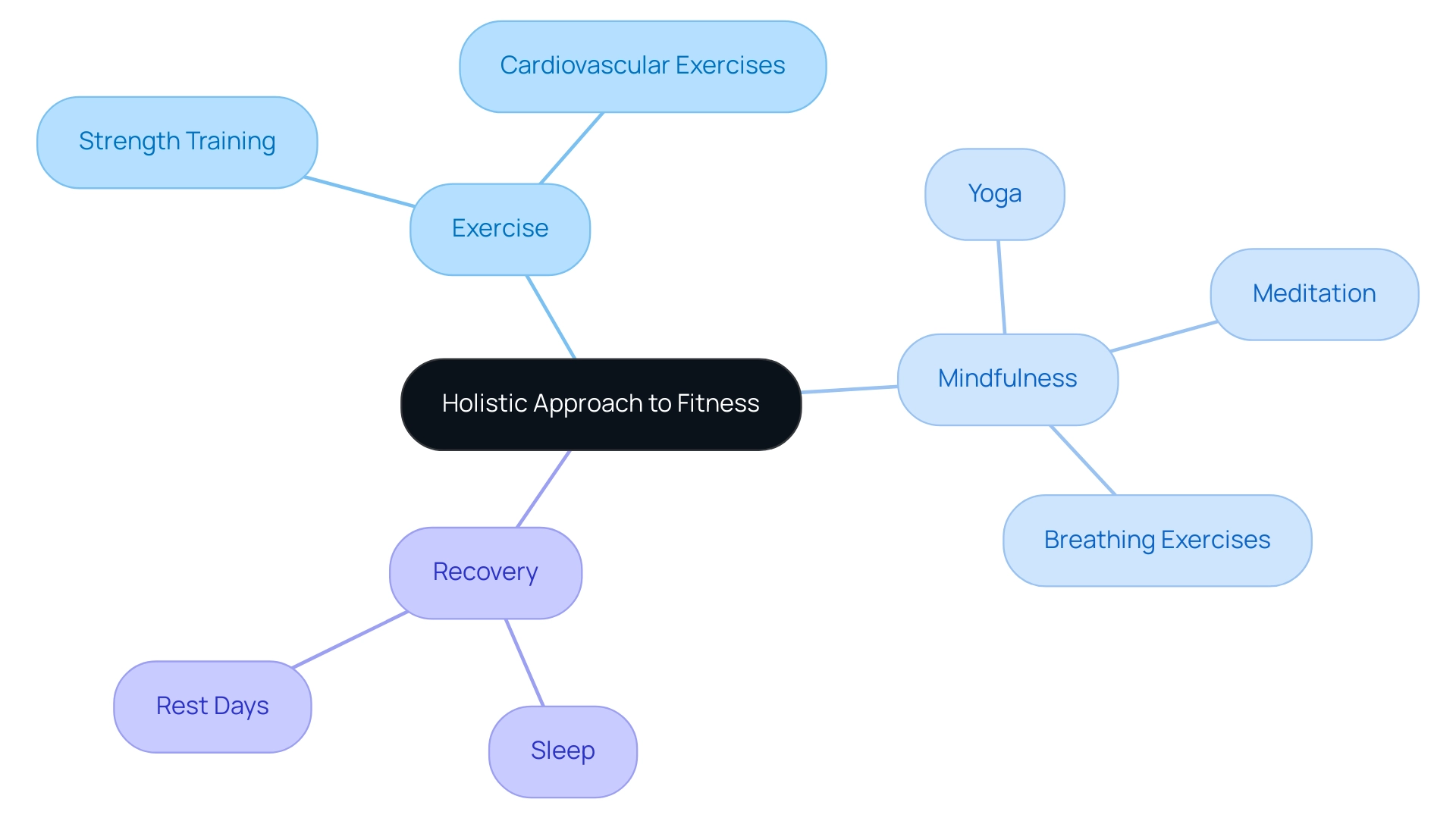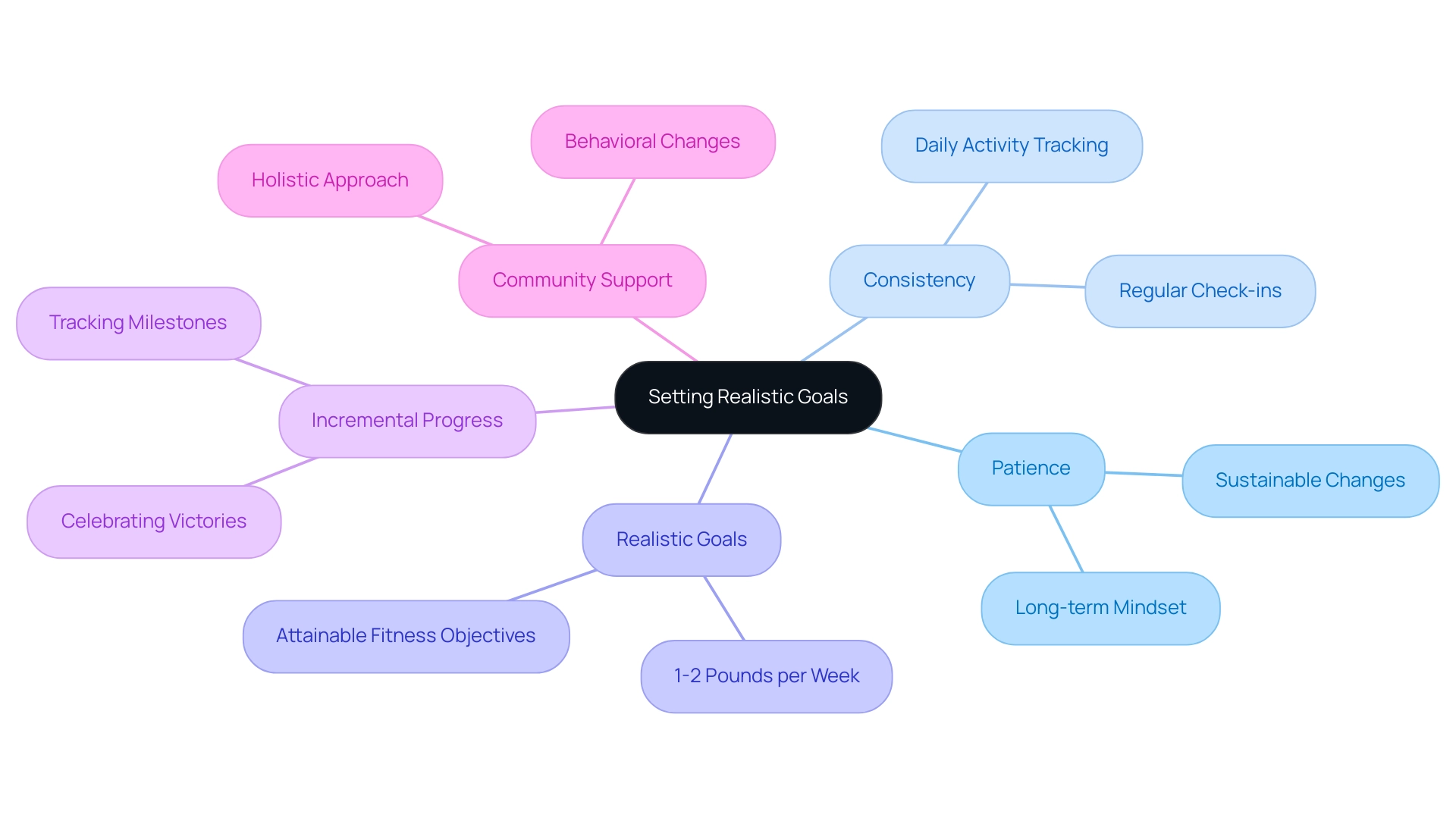Overview
Doing sit-ups will not effectively reduce belly fat, as the concept of spot reduction has been debunked; fat loss occurs throughout the body and is influenced by factors like genetics and overall body composition. The article supports this by explaining that while sit-ups can strengthen abdominal muscles, a comprehensive approach involving cardiovascular exercise, proper nutrition, and lifestyle changes is essential for effective fat loss.
Introduction
In the quest for a healthier lifestyle, many individuals find themselves entangled in the misconception that targeted exercises, like sit-ups, can effectively eliminate stubborn belly fat. This common belief often leads to frustration and an endless cycle of ineffective workouts.
However, understanding the science of fat loss reveals that achieving a slimmer waistline requires a more holistic approach, encompassing:
- Balanced nutrition
- Diverse exercise routines
- Mindful practices
As organizations strive to foster employee well-being, it becomes increasingly important for HR Benefits Managers to champion comprehensive health strategies that address not only physical fitness but also the psychological and nutritional aspects of health.
By embracing evidence-based practices and encouraging a culture of support, companies can empower their teams to embark on a transformative journey toward lasting wellness and vitality.
The Myth of Spot Reduction: Why Sit-Ups Won't Target Belly Fat
The widespread belief that doing sit-ups will reduce belly fat has led many to engage in excessive abdominal workouts in hopes of achieving a slimmer waistline. However, it’s crucial to understand that fat loss cannot be localized to specific areas of the body solely through exercise. The myth of spot reduction has been debunked; when our bodies shed fat, it occurs in a generalized manner influenced by factors such as genetics, hormonal balance, and overall body composition.
While sit-ups can certainly strengthen and tone the abdominal muscles, they do not provide a direct answer to the question of whether doing sit-ups will reduce belly fat. Instead, a balanced exercise regimen that incorporates cardiovascular activities, strength training, and proper nutrition is essential for effective fat loss. Recent statistics suggest that individuals who worked out 1-2 times weekly experienced an impressive 88% rise in their wellness routines during the pandemic, illustrating that even minor commitments can result in substantial improvements in well-being.
Moreover, key statistics indicate that the waist-hip ratio for the control group reduced from 0.98 to 0.95, highlighting the effectiveness of comprehensive fitness plans. State-specific obesity rates further emphasize the need for broader wellness initiatives, with Colorado boasting the lowest obesity rate at 22.6% and West Virginia the highest at 38.1%. Such data illustrate the importance of addressing overall health approaches rather than fixating on localized exercises.
As a physician aptly stated, 'Let’s figure out how we can move forward and keep getting the benefits together. By agreeing on a couple of next steps, we can reconvene in a few weeks to evaluate progress and think about further approaches if needed.' This collaborative approach can empower individuals to adopt comprehensive fitness plans that lead to lasting results.

Understanding Fat Mobilization: The Science Behind Belly Fat Loss
Understanding fat mobilization requires recognizing its intricate nature, influenced by factors including diet, exercise intensity, and hormonal responses. Obesity, defined as having a body mass index of 30 or higher, can lead to numerous health issues. When the body seeks energy, it initiates lipolysis, a vital process where triglycerides break down into free fatty acids and glycerol.
These free fatty acids are then released into the bloodstream, serving as a crucial fuel source. Importantly, while many wonder if doing sit-ups will reduce belly fat, the rate of fat mobilization from specific areas, such as the abdominal region, is influenced by individual physiology and cannot be effectively targeted through exercises like sit-ups alone. Current research shows that elements such as stress levels, sleep quality, and overall caloric balance significantly impact fat loss.
Statistics indicate that 7.9% of Hispanic adults experience severe obesity, emphasizing the urgency of a comprehensive plan to combat this issue. An effective approach to fat loss must encompass regular physical activity, balanced nutrition, and stress management as integral components. Utilizing a comprehensive wellness coaching app can enable individuals to embrace these approaches effortlessly.
With features such as daily workouts, a 350+ movement catalog, guided nutrition plans, supplement advice, and mindset strategies, users are equipped to tackle their wellness goals efficiently. Additionally, the app fosters community support, providing direct messaging with coaches for personalized guidance, bi-weekly group calls for ongoing motivation, and peer support. Expert opinions emphasize that fat mobilization is a complex interplay of genetic, environmental, and psychological factors.
Weight stigma can result in social and psychological issues, complicating the challenges faced by those dealing with obesity. Insights from the case study titled 'Complex Nature of Obesity' highlight that obesity is influenced by various factors including genetics, medications, sleep, and access to resources. Acknowledging this complex aspect of obesity allows HR Benefits Managers to promote comprehensive wellness initiatives within their teams, cultivating an atmosphere that emphasizes well-being and tackles the root causes of obesity.
By integrating tools that offer personalized coaching and community support, organizations can significantly enhance their health initiatives and contribute to a healthier workforce.

The Role of Nutrition in Fat Loss: Why Diet Matters More Than Exercise
Nutrition plays an indispensable role in the journey toward effective fat loss, often overshadowed by the emphasis on exercise. A balanced diet that includes whole foods, lean proteins, healthy fats, and a variety of fruits and vegetables is crucial for establishing a caloric deficit, the fundamental requirement for weight reduction. Recent studies highlight that in 2021, 60% of U.S. adults expressed a desire to embrace healthier lifestyles, reflecting a growing awareness of the importance of nutrition.
Alarmingly, according to 2017–2018 NHANES data, 6.1% of children and adolescents ages 2 to 19 have severe obesity, underscoring the critical need for effective dietary interventions. Furthermore, expert insights, such as those from Loudcloudhealth, underscore the significance of sleep, noting that when dieters are sleepless for 14 days, the amount of weight they lose from extra fat lowers by a stunning 55%. This illustrates that successful weight management extends beyond just dietary choices.
Incorporating expert opinions on macronutrient ratios can further improve dietary plans. For instance, understanding the right balance of carbohydrates, proteins, and fats can equip individuals to make informed choices that align with their fitness goals. Reducing processed foods and added sugars has shown substantial benefits in improving body composition, as indicated by the latest nutrition statistics for 2023 and 2024.
Notably, the weight loss industry is increasingly leveraging science-backed, inclusive, and technology-driven approaches, as highlighted in the case study titled 'Science-Backed Approaches in Weight Loss.' These strategies foster healthier habits and motivate individuals to make sustainable dietary changes that yield lasting results. By prioritizing nutrition, Foresight Coaching empowers HR Benefits Managers to enhance their teams' gym efforts, ultimately supporting a culture of well-being and achievement through tailored coaching services, including in-person wellness talks, pantry services, and access to our wellness app.
Moreover, our interactive workshops and webinars offer engaging chances for employees to learn effective stress management techniques and advanced nutritional planning, further enriching their wellness journey.

Incorporating a Holistic Approach to Fitness: Exercise, Mindfulness, and Recovery
To achieve enduring results in fat loss and overall health, embracing a holistic approach is crucial—one that intertwines exercise, mindfulness, and proper recovery. Consistent physical activity, especially strength training and cardiovascular exercises, establishes the basis of well-being. However, integrating mindfulness practices such as yoga, meditation, or even simple breathing exercises can significantly enhance mental clarity and alleviate stress, essential for effective weight management.
A recent study revealed that 56 percent of US Gen Z consumers consider well-being a 'very high priority', underscoring the growing demand for comprehensive wellness strategies. Corporate wellness programs customized to the specific requirements of your team can provide personalized coaching and an interactive app, streamlining health and well-being management while ensuring that each member receives individualized support. By investing in these wellness programs, organizations not only promote healthier employees but also take a proactive approach to healthcare costs, leading to significant savings on insurance premiums in the long run.
Moreover, the rise of Artificial Intelligence (AI) and Virtual Reality (VR) is poised to transform the exercise experience, providing innovative solutions that customize workouts and enhance engagement. By prioritizing recovery through adequate sleep and intentional rest days, employees can ensure muscle repair and hormonal balance, both vital for fat loss. Moreover, enhancing clinical credibility through third-party certifications is essential for ensuring safety and effectiveness in fitness programs, which is why employing certified exercise professionals is becoming increasingly important.
Implementing these wellness programs can create a new value structure within the organization, fostering loyalty and attracting top talent. By acknowledging the interconnectedness of physical and mental wellness, HR Benefits Managers can advocate for these effective strategies and foster a culture of well-being within their organizations.

Setting Realistic Goals: The Importance of Patience and Consistency
Achieving sustainable fat loss and improving overall health is a journey that demands both patience and consistency. It's essential to set realistic and attainable fitness goals to maintain motivation and prevent feelings of discouragement. Rather than striving for drastic transformations, individuals should focus on gradual progress, targeting a weight loss of 1-2 pounds per week and integrating more physical activity into their daily lives.
Celebrating these incremental victories can significantly boost enthusiasm and commitment to the journey ahead. Notably, 35.67% of North Carolinians successfully lost weight during the pandemic, illustrating that change is possible when approached thoughtfully. Furthermore, recent data reveals that in 2021, 60% of U.S. adults expressed a strong desire to adopt healthier lifestyles, emphasizing the collective shift towards well-being.
Experts from Medifast highlight the importance of a holistic approach to weight management, advocating for community support and lifestyle adjustments alongside any medical interventions. This integrated approach not only nurtures healthier habits but also fosters a supportive environment conducive to lasting change. As you embark on this journey, consider taking advantage of our free 7-day trial of the Foresight Health Coaching app, which offers personalized coaching, daily activity tracking, and meal planning tools designed to empower you to thrive in the modern world while drawing insights from the past.
According to Statista, in 2019, 28.5% of adults aged 65+ in the United States were obese, underscoring the critical need for effective weight management strategies. By recognizing that sustainable changes require time, individuals can cultivate a healthier connection with their bodies and their wellness journeys—an essential mindset for long-term success. As motivational speaker Zig Ziglar once said, 'You don’t have to be great to start, but you have to start to be great.'
This mindset is crucial for HR Benefits Managers looking to inspire others to set and achieve realistic fitness goals.

Conclusion
The journey to achieving a healthier lifestyle and reducing stubborn belly fat is complex, requiring a multifaceted approach that transcends the myth of spot reduction. It's clear that targeted exercises, such as sit-ups, do not yield the desired results for fat loss in specific areas. Instead, a balanced regimen that combines diverse exercise routines, mindful practices, and balanced nutrition is essential.
Emphasizing a holistic strategy is vital for HR Benefits Managers aiming to foster a culture of well-being within their organizations. By advocating for comprehensive health initiatives that address physical fitness, mental well-being, and nutritional education, companies can empower their employees to embark on a path toward lasting wellness. This not only enhances individual health outcomes but also contributes to a more engaged and productive workforce.
As organizations embrace these evidence-based practices, they can cultivate an environment that encourages patience and consistency in health journeys. Recognizing that sustainable transformations take time and that setting realistic goals is crucial will help individuals maintain motivation and celebrate their progress. The collective effort to prioritize well-being will not only lead to healthier employees but also create a positive ripple effect throughout the organization, ultimately enhancing overall productivity and morale. Now is the time to take action and implement these strategies for a healthier, happier workplace.




